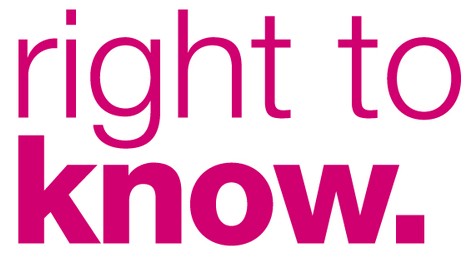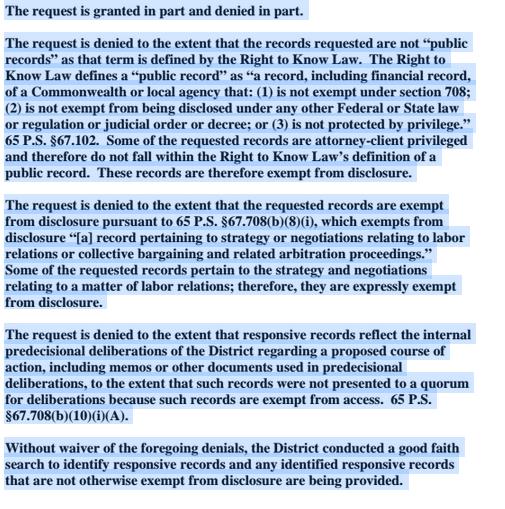
The TESD Finance Committee meeting agenda for Wednesday, May 31, 6:30 PM is available here.
The school board is on the countdown to the approval of the 2017-18 budget on Monday, June 12 but there’s a major open issue as indicated in the agenda for tomorrow’s meeting. Actually, there are three unknowns or ‘TBD’ as stated on the draft budget as shown below:
For the first time that I am aware, the school board is faced with the contracts of the District teachers (TEEA), the non-instructional group (TENIG) and Act 93 (administrators) all expiring on the same date — on June 30, 2017. In years past, the contracts terms were staggered. To my knowledge, there has been no update from the school board regarding any one of these three contracts that expire in a month.
In years past, the threat of outsourcing of some of TENIG’s employees was considered by the school board (as a budget savings). In tight budget times, the District’s custodians, secretaries, maintenance workers and kitchen workers all became a target for outsourcing during budget negotiations. Don’t get me wrong — I’m no fan of outsourcing. (We don’t need to look any further than the school board’s decision to outsource the aides and paras and ask how that has worked out.)
In the current TENIG contract (July 1, 2014 – June 30, 2017), the custodians received a 2% salary reduction and additionally had to give back 1 week of their vacation. (The rationale was that the District had to hire subs when the custodians are on vacation). The other members of TENIG (security, kitchen, maintenance, and cafeteria) received a 4% salary reduction in the new contract but their vacation benefit remains intact. Since the current TENIG contract required salary reductions, it does not seem plausible that these T/E workers would not receive an increase in the new contract (at least the new contract should bring the TENIG employees back to their June 30, 2014 salary level). The public doesn’t know the answer.
The current TEEA contract (July 1, 2014 – June 30, 2017) was ratified in February 2014, months in advance of its June 30, 2014 expiration date. The contract protected the jobs of the District teachers and included a ‘no furloughs or demotions’ clause through June 2017. The teachers received salary increases based on their step movement in the matrix. The contract included a Distance E-Learning Pilot Program that ran the length of the contract, expiring on June 30, 2017. If you recall, TEEA previously filed a suit (and won) against the District over their implementation of distance learning so it was somewhat surprising to see its inclusion in the contract. Are we confident that the new TEEA contract will honor the ‘no furlough or demolition’ clause contained in the current contract? The public doesn’t know the answer.
The third TESD contract due to expire in a month is the Act 93 Agreement — the District’s administrator compensation plan. The current Act 93 Agreement (January 29, 2013 – June 30, 2017) included a one-time bonus for service in the previous two and one-years and a one-time bonus of 1% of the individual’s salary award each June.
At the time the Act 93 contract was signed, there was discussion that the lowest paid groups – the TENIG workers – were taking a salary decrease whereas the administrators’ salaries were increasing. So with the teachers, administrators and the non-instructional workers with contracts expiring in a month, it’s going to be interesting to see if fairness will prevail. Will the administrators continue to receive an annual bonus? The public doesn’t know the answer.
For me, the problem is that there’s been no update whatsoever in the contract negotiation process and the final budget is to be approved in a couple of weeks on Monday, June 12.
Although the draft budget includes a maximum tax increase of 3.4%, it indicates a $1.6 million deficit. The plan is to make up the deficit with a transfer from the District’s fund balance. Plus, we do not know the impact of the teachers, administrator and TENIG contracts on the budget. As indicated in the graphic above, the three contracts are ‘TBD’.
I re-read an old Community Matters post on this topic from April 2012, ‘Seeking Transparency in TESD Teacher Contract Negotiations’ which had a follow-up post on May 17, 2012, ‘TE Teachers Turn on Transparency Lights in Contract Negotiations’. In re-reading these posts and the many comments, what was striking was the need for regular updates to the public by the Board. The lack of information and/or misinformation during the contract negotiations aggravated an already difficult situation. In the CM post of May 17, 2012, I wrote,
” … making the teacher contract negotiation process transparent for the public would help the community understand how our children will be taught and how our tax dollars will be invested. The relationship between teachers and school administrators is an important element in what shapes this school district. There is no better way to understand this relationship than to observe the contract negotiation process. …”
Harping on the lack of transparency and public information by the school board does not seem to work – except maybe in an election year! (School board directors Doug Carlson, Virginia Lastner and Scott Dorsey are up for re-election although Scott has no opposing candidate.) No doubt the school board would lament that they cannot provide updates during the contract negotiating process as its explanation for keeping the public in the dark.
The final approval on the TESD 2017-18 budget looms in two weeks, Monday, June 12. When will the school board provide the public with the three contracts? When will the final budget (with the missing ‘TBD’ contract information) be made available to the public? Perhaps some of these answers will be available at the Finance Meeting on Wednesday night.
 winning, nationally ranked school district, it is difficult to understand how the TESD leaders would seek to outsource valuable employee jobs rather than offer health care benefits as required by the Affordable Care Act. Due to the delay of ACA compliance enforcement, the aides and paras were able to continue their employment through the 2014/15 school year.
winning, nationally ranked school district, it is difficult to understand how the TESD leaders would seek to outsource valuable employee jobs rather than offer health care benefits as required by the Affordable Care Act. Due to the delay of ACA compliance enforcement, the aides and paras were able to continue their employment through the 2014/15 school year.
